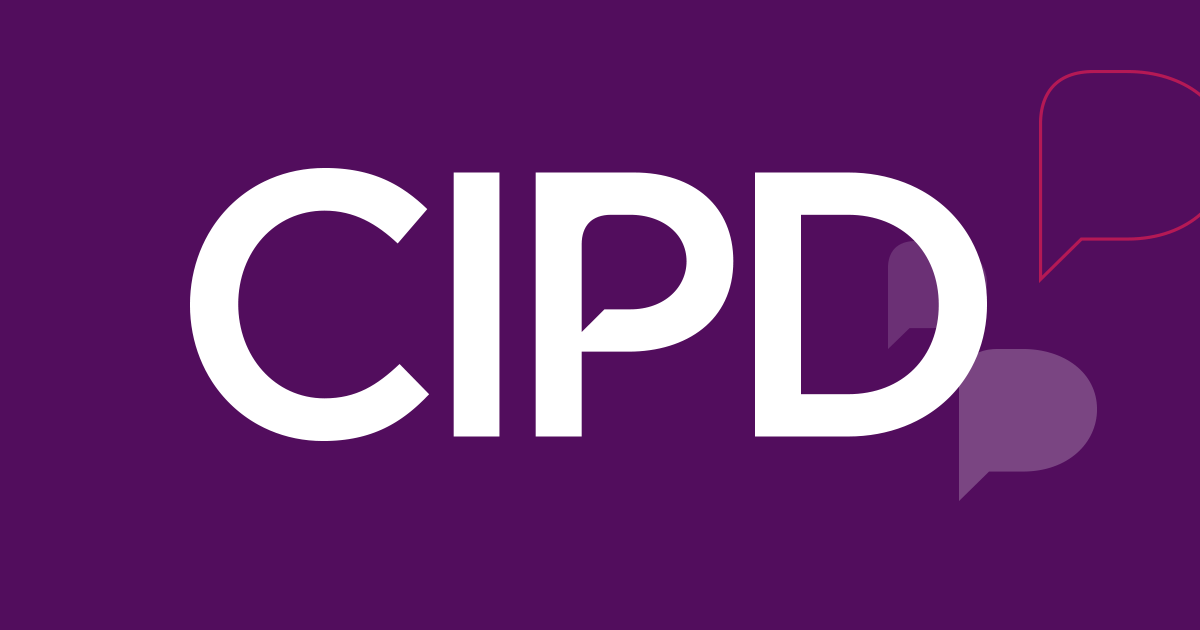
DIBS HR BLOG
HR News and Current Affairs

When the Heart Hurts at Work: Understanding Grief After a Breakup
Grief doesn’t only come after death. The end of a long-term relationship can bring deep, lasting pain that quietly follows people into work. It’s time we recognise heartbreak as grief too - and make space for compassion in the workplace.

Performance in a Hybrid World: Rethinking Management for Modern Work
Performance management has struggled to keep pace with the shift to hybrid working. As the traditional metrics of productivity fade—like office presence or hours at the desk—organisations must rethink how they assess and support performance in dispersed teams. This blog explores why old models of performance management no longer work and how companies can evolve their approach to focus on outcomes, regular feedback, and inclusive practices. Drawing on recent CIPD research and practical HR insight, we highlight how managers can become better coaches, how to avoid common hybrid pitfalls, and why trust and fairness are central to high performance. In a hybrid world, good performance isn’t about where you are—it’s about what you contribute.

Culture, Connection, and the Hybrid Workplace: Why Remote Work Isn’t Going Anywhere
Remote work is no longer just a pandemic-era solution—it’s now a core part of workplace culture. With 71% of UK workers reporting better work-life balance from home, and many citing improved focus and inclusivity, it’s clear that hybrid working is here to stay. But maintaining culture in a hybrid world isn’t without challenges. Leaders must rethink how to build connection and belonging when teams are no longer sharing a physical space. This blog explores why employees want to stay remote, the tangible business benefits of flexible working, and how culture can thrive with the right support. From virtual rituals to meaningful onboarding and regular communication, hybrid culture needs to be intentional—not accidental. With careful planning and empathy-driven leadership, remote work can enhance—not diminish—your organisation’s culture.

To CIPD or Not to CIPD: Why Membership Matters – and Why Some Still Say No
CIPD membership is often seen as the gold standard for HR professionals in the UK—offering credibility, learning resources, ethical guidance and access to a wide professional network. Yet, not everyone chooses to join. Some HR practitioners cite cost, lack of employer support, or a belief that hands-on experience is more valuable than formal accreditation. This blog explores both sides of the discussion: what you gain by joining the CIPD, and why some choose to opt out. Ultimately, while membership isn’t a must-have for every role, it can be a powerful tool for those looking to grow, lead, and shape the future of work. For HR professionals thinking long-term, it’s worth understanding what the CIPD offers and whether it aligns with your goals. There may not be a one-size-fits-all answer, but there’s a compelling case to be made for investing in your own professional journey.

Working with Dyslexia: Visibility, Adjustment, and Belonging
Dyslexia affects around 10% of the UK population, yet many people still choose to hide their diagnosis at work—often out of fear of stigma or being seen as ‘less capable’. While awareness is growing, too many UK workplaces are still not set up to support neurodivergent employees in practice. From unclear communications to unrealistic expectations around written tasks, everyday barriers remain. But with the right adjustments—like assistive tech, clearer communication, and inclusive management—people with dyslexia can not only succeed, but thrive. This blog explores what it’s really like to work with dyslexia, why so many people stay silent, and how HR can build a culture where disclosure feels safe. It ends with three key actions for employers: audit your practices for inclusion, train your managers, and create visibility without pressure. True belonging means no one should have to hide how their brain works just to get by.

Neurodiversity at Work: Beyond Awareness to Real Inclusion
Neurodiversity is finally getting the attention it deserves in UK workplaces—but are we moving from awareness to real inclusion? While some organisations are making great strides, many recruitment and workplace practices still exclude neurodivergent individuals, whether intentionally or not. Around 15–20% of the UK population is neurodivergent, yet employment rates for groups like autistic adults remain worryingly low. Inclusive employers are rethinking recruitment, offering practical adjustments, and embedding neurodiversity in manager training—not as a tick-box exercise, but as a fundamental part of ethical and effective practice. Neurodivergent employees bring strengths in creativity, problem-solving and innovation when they are supported to thrive. This blog explores what true neuroinclusion looks like, and offers three things employers can do today: audit recruitment, create psychological safety, and include neurodivergent voices in policy design.

EVE Online: A Masterclass in People Management
At first glance, EVE Online might seem like just another sci-fi game — but look closer, and you’ll find one of the most complex leadership and organisational simulations in existence. In this blog, we explore how EVE’s in-game corporations mirror real-world workplaces, complete with recruitment processes, onboarding, team management, leadership development, and conflict resolution. These corporations are run entirely by players, many of whom take on roles equivalent to HR professionals — often without even realising it. From managing remote teams across time zones to fostering inclusive digital cultures, the skills developed in EVE are not only transferable but highly valuable in today’s HR landscape. If you’ve ever led a fleet, trained new recruits, or navigated alliance diplomacy, chances are you’ve been building professional competencies along the way. It’s time we recognised gaming as a legitimate space for developing the next generation of leaders — and EVE Online is leading the charge.

The Four-Day Working Week: Dream or Disruption?
The four-day working week is gaining traction in the UK, with recent trials indicating benefits such as improved employee well-being and maintained productivity. A significant trial involving 61 companies found that 92% continued with the reduced working week post-trial, citing enhanced staff retention and recruitment. However, the Chartered Institute of Personnel and Development (CIPD) advises a measured approach, emphasizing the need to balance organisational needs with employee well-being. Challenges include operational feasibility, potential increases in daily workloads, and ensuring equitable access across all roles. HR professionals are central to this transition, responsible for policy development, stakeholder engagement, and ongoing evaluation. For employers considering this model, starting with a feasibility study, piloting the programme, and maintaining open communication are crucial steps. While the four-day week offers promising advantages, its success depends on thoughtful implementation tailored to each organisation's unique context.

Gaming and HR: More Alike Than You Think
Gaming and HR may seem like unlikely companions, but the skills developed in immersive gaming environments — from leadership and communication to data analysis and strategic thinking — are highly transferable to the world of human resources. In fact, gamers often take on roles that mirror HR responsibilities: leading teams, resolving conflict, building communities, and making quick, informed decisions under pressure. As modern HR becomes more digital, analytical, and people-focused, it’s time to recognise that professional development doesn't just happen in the office. It happens in guilds, fleets, campaigns, and co-op missions. This blog explores the deep and often overlooked overlap between gaming and HR, and makes the case for why employers should take this kind of experience seriously. If we want to build more inclusive, skills-based workplaces, we need to expand our definition of what valuable experience really looks like.

Let’s Talk About It: Women's Health, the Workplace, and What Needs to Change
In 2025, far too many employees still feel unable to speak openly about their health. A recent CIPD report found that three in five young women have concealed period-related sick leave, fearing judgement or misunderstanding. Menopause, too, remains a workplace taboo, despite its impact on wellbeing and performance — with some women even leaving the workforce due to a lack of support. It’s time for change. This blog explores how stigma, silence, and outdated policies are failing not only women, but anyone who menstruates or experiences hormone-related health challenges. Inclusive, ethical workplaces must move beyond the basics, creating cultures of trust and openness. We explore why this matters, who’s being left out, and what employers can do — ending with three practical actions that can transform policy into meaningful support.

Employer Confidence Hits Record Low: Unpacking the UK's Hiring Freeze
Employer confidence in the UK has hit its lowest point in years, according to the latest CIPD Labour Market Outlook. Hiring intentions are down, redundancy expectations are up, and a cautious mood is taking hold across sectors. But what’s really driving this shift — and what does it mean for HR professionals trying to plan ahead? In this blog, we explore the wider economic picture behind the headline stats, including the impact of high interest rates, global instability, Brexit, and skills mismatches. We also take a closer look at which sectors are struggling most, and why jobseekers are feeling the effects. It’s not all doom and gloom — but it is a moment to reflect. As businesses hesitate to invest, the role of HR becomes even more critical in shaping strategy, supporting people, and navigating uncertainty with confidence.

Bridging the Gap: Generational Views of the Job Market in the UK
“Young people just don’t want to work anymore.” It’s a sentiment echoed across generations — but does it reflect reality? At DibsHR, we’re exploring the growing disconnect between how older and younger generations view the UK job market. While some see a sea of unfilled roles, many Gen Z jobseekers report applying for hundreds of positions without so much as a reply. With youth unemployment hovering around 11.5% and entry-level roles demanding years of experience, it’s clear the problem isn’t laziness — it’s access. In this blog, we unpack the myths, share current UK statistics, and offer practical advice for employers and jobseekers alike. Because when it comes to building a fairer, more inclusive job market, it’s time to stop pointing fingers and start listening.
Read the full post to learn how we can bridge the generational divide and create a job market that works for everyone.

The Ultimate Balancing Act: University as a Mature Student
University is tough. Now add a full-time job, running an orchestra, managing a student society, and leading an EVE Online corporation—all while commuting. Chaos? Maybe. But every challenge sharpens my skills, from HR strategy to space logistics. It’s exhausting, exhilarating, and completely worth it.

Launching DibsHR
Finding your voice in the world of HR, introducing my personal blog & brand, DibsHR.